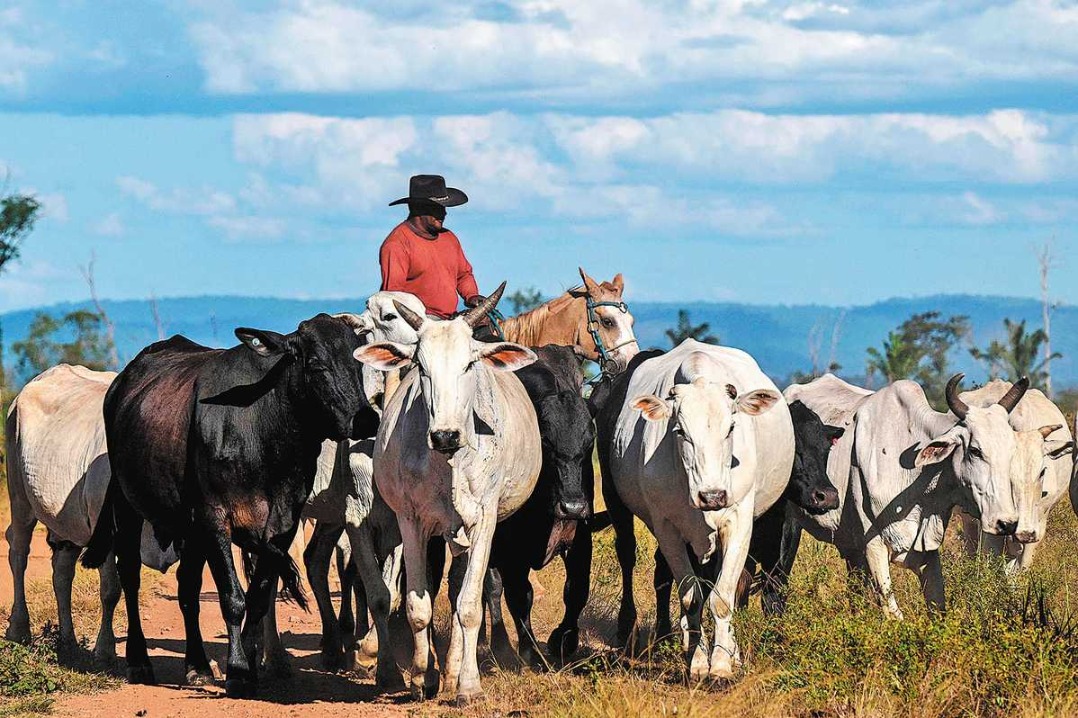Tigers in Asia get a little help from Leo, and it pays off

The head count of wild tigers roaming the jungles and forests of Asia has gone up for the first time in more than a century.
After hitting an all time low of 3,200 in 2010, the world's wild population of the striped predators now stands at an estimated 3,890. The counting was done by conservation groups and national governments in the latest global census, according to the World Wildlife Fund (WWF) and the Global Tiger Forum.
India has the lion's share with more than half, 2,226. Russia has 433; Indonesia, 371; Malaysia, 250; Nepal, 198; Thailand, 189; Bangladesh, 106; and Bhutan, 103.
China has more than seven, the report said. Vietnam has fewer than five; Laos has two; and Cambodia has zero.
Experts said the news was cause for celebration but stopped short of saying the number of tigers itself was actually rising.
"I think the numbers need to be looked at carefully and verified before there is celebration," J.A. Mills, author of Blood of the Tiger: A Story of Conspiracy, Greed and the Battle to Save a Magnificent Species, wrote in an e-mail to China Daily.
Mills pointed out that while tigers are extinct or nearly extinct in Cambodia, Vietnam and Laos, the number in Bangladesh is down by more than half and there has been a worrying increase in tiger poaching in India and Nepal.
Still, this is the first time tiger counts are increasing since 1900, when there were more than 100,000 in the wild.
"More important than the absolute numbers is the trend, and we're seeing the trend going in the right direction," Ginette Hemley, senior vice-president of wildlife conservation at WWF, told The Associated Press.
The global census, compiled from national tiger surveys as well as the International Union for Conservation of Nature, was released on Monday, a day before ministers from 13 countries meet for a three-day tiger conservation meeting in New Delhi.
The countries teamed up with conservation groups after the alarmingly low count and at a meeting in Russia in 2010 pledged to double wild tiger numbers by 2022. Film actor Leonardo DiCaprio joined the effort through his foundation.
"Tigers are some of the most vital and beloved animals on Earth," DiCaprio said in a statement following the announcement. "I am so proud that our collective efforts have begun to make progress toward our goal, but there is still so much to be done."
Not all nations are yet seeing progress. While Russia, India, Bhutan and Nepal all counted more tigers in their latest surveys, Southeast Asian countries have struggled.
"When you have high-level political commitments, it can make all the difference," Hemley said. "When you have well protected habitat and you control the poaching, tigers will recover. That's a pretty simple formula. We know it works."
Tiger parts have been used in traditional Chinese medicine for more than 1,000 years. Bones, teeth, claws, whiskers, penis and eyes have been prescribed for ailments including insomnia, malaria, meningitis, leprosy, epilepsy, impotence and malaria.
Tigers are being farmed in China, Laos, Vietnam and Thailand, to conservationists' dismay. The Environmental Investigation Agency estimates that there are between 5,000 and 6,000 tigers being held in captivity in 200 facilities in China where they "are often intensively bred for trade".
"Even if there are 3,890 tigers remaining in the wild, that is not nearly enough to withstand the onslaught of demand that will occur if China's tiger farms are allowed to fully open trade in products from farmed tigers," Mills said, explaining there will still be a consumer preference for wild-raised parts over those bred in cages.
"Think of bones from farmed tigers as cubic zirconia and bones from wild tigers as natural diamonds. Supply of one will not satisfy demand for the other," she said.
Marco Lambertini, director general of the WWF, said the new tiger headcount "offers us great hope and shows that we can save species and their habitats when governments, local communities and conservationists work together."
"I believe President Xi Jinping will save wild elephants with the ban he has mandated on ivory trade in China," Mills said. "I believe only he can save wild tigers by mandating an end to tiger farming. Until then, every last wild tiger will have a handsome price on its head."
"The US just made major move to regulate its captive tigers by making it illegal to trade so-called 'generic' tigers," she added.
Contact the writer at chrisdavis@chinadailyusa.com.


































